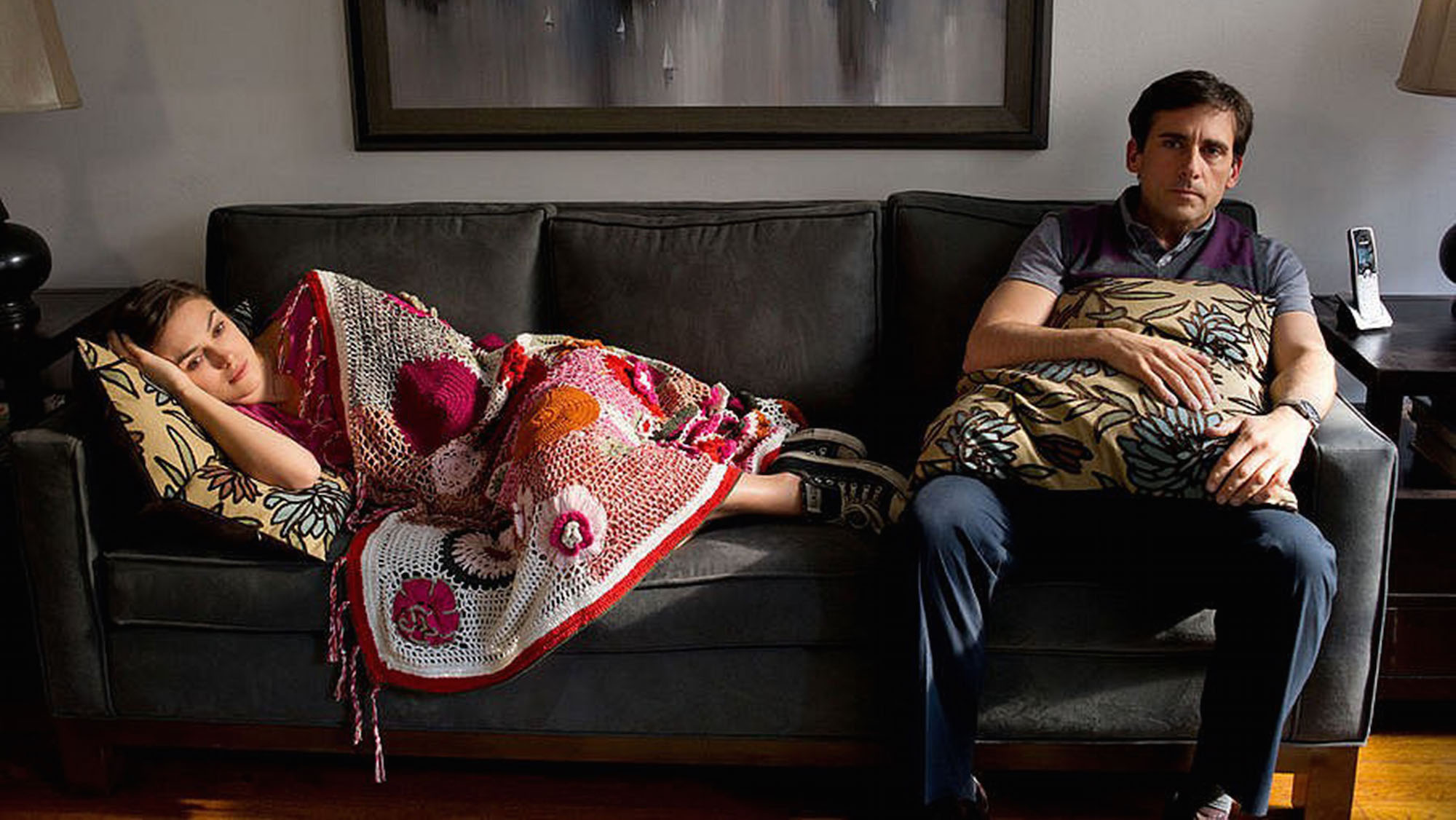What is co-dependency, and how can you spot the signs?
Co-dependency is so rife among women most people consider the symptoms to be normal behaviour... Journalist Lauren Windle, 28, explains the addiction that most people don't even know exists

Co-dependency is so rife among women most people consider the symptoms to be normal behaviour... Journalist Lauren Windle, 28, explains the addiction that most people don't even know exists
Words by Lauren Windle
When I was 15, I ditched my much-loved nose piercing because my boyfriend thought it looked 'too alternative'. This was around the same time my friend spent hours perfecting the words to Forgot About Dre because her new beau 'was just really into the rap scene'.
That same friend would later shell out £6,000 to augment her breasts from a natural B cup to a Barbie-style E because her latest squeeze – different guy, equally questionable – dreamt of dating Pamela Anderson circa 1995.
We’ve all seen friends morph into gym bunnies, keen amateur chefs, or blondes/brunettes/red heads just to please or appease their partners.
In some cases, a bit of harmless adaptation is just a symptom of neediness, and injecting a bit of perspective solves the issue. In other, more extreme cases (i.e. boob job friend), this behaviour is all down to an addiction.
Last year I set up a recovery course for people struggling with all types of compulsions. The more I spoke about the addictions that plagued our society, the more I realised no one had a clue about co-dependency.
Marie Claire Newsletter
Celebrity news, beauty, fashion advice, and fascinating features, delivered straight to your inbox!
Effectively, co-dependency is a pattern of behaviour where you find yourself totally dependent on the approval of others for your self-worth and identity. It's a modern day epidemic, but so many people identify with these issues that they fool themselves into thinking they are normal and to be tolerated.
Removing my nose-piercing may have been the first time I submitted to someone else for their approval, but it wouldn’t be the last.
I went on to be in a serious relationship with a man who disapproved of a specific sub-set of my friends – notably the better looking of my circle – as he claimed they were 'bad news' (the most vague of all the character defects).
I responded by cutting them out of my life and only reconnected, tail between legs, three years later, when the relationship was over.
These are telltale signs of co-dependency and while they didn’t drive me to cosmetic surgery, they can still be deeply damaging in different ways.
Despite sounding a bit wishy-washy, this addiction is very real. While definitely affecting men, it is particularly rife among women. The issue is that without a true understanding of the condition, people aren’t able to recognise it in themselves or others and therefore aren’t seeking the right treatment. But co-dependency doesn’t just direct itself towards your romantic partner.
Ever felt an overwhelming need to continuously phone and message a friend who seems to be ignoring you, because you think they may be annoyed, despite being pretty sure you’ve done nothing wrong?
Someone once told me about a time her boss had been leaving the office, but turned back and asked to see her first thing the next day. My friend was so convinced that she was about to be reprimanded, despite not recalling any wrong doing, that she wasn’t able to sleep all night.
When 9am rolled around, she went in to see her boss and broke down in tears - only to be told that she just wanted a simple debrief following a successful project.
The book The Way To Love by Anthony DeMellow describes how this hollow behaviour pattern allows us to be completely controlled by others’ approval and disapproval. He describes how this can ease our loneliness, send us sky high with their praise or sink us 'down to the depths with their criticism and rejection'.
The addiction can manifest itself in a number of different ways, but a major one, which in turn, causes a barrage of it’s own issues, is accepting sexual attention as a substitute for love.
The lie that a man will only want you if you are alluring, or if you have the perfect body, or have perfected the best flirting technique is driving women to adopt increasingly destructive behaviours, destroying their self-esteem.
Treatment is available in the form of therapy, support groups and enough books to fill a library and you can read a full list of the traits associated with the condition here.
Everyone should read it and familiarise themselves with the nature of the problem so that they can identify it, in themselves or others.
Let’s make a deal – you read through that while I go and get my nose pierced.
The leading destination for fashion, beauty, shopping and finger-on-the-pulse views on the latest issues. Marie Claire's travel content helps you delight in discovering new destinations around the globe, offering a unique – and sometimes unchartered – travel experience. From new hotel openings to the destinations tipped to take over our travel calendars, this iconic name has it covered.
-
 Here's every character returning for You season 5 - and what it might mean for Joe Goldberg's ending
Here's every character returning for You season 5 - and what it might mean for Joe Goldberg's endingBy Iris Goldsztajn
-
 Céline's new Selfridges pop-up is an ode to summers on the French Riviera
Céline's new Selfridges pop-up is an ode to summers on the French RivieraA one-stop-shop for the ultimate holiday wardrobe
By Clementina Jackson
-
 Why Prince William will attend the pope's funeral instead of King Charles
Why Prince William will attend the pope's funeral instead of King CharlesHe's representing his dad
By Iris Goldsztajn